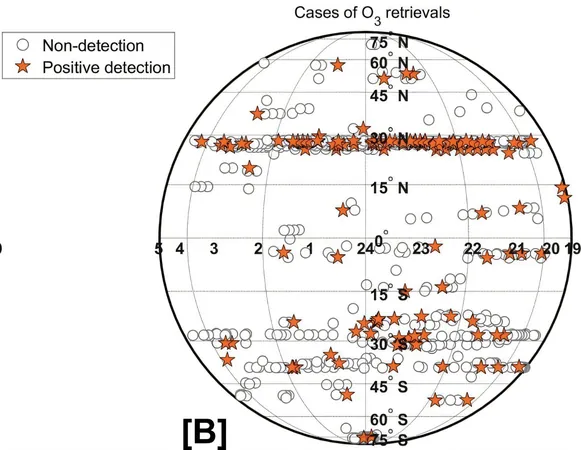
The Shocking Truth About Ozone: Why It Can't Be Trusted as a Sign of Life!
2025-05-30
Author: Emma
Ozone: The Great Misunderstanding in the Search for Extraterrestrial Life
For years, scientists have held a firm belief that ozone signifies life—at least here on Earth. But recent discoveries on Venus are upending that notion, revealing that ozone can sprout up even in lifeless atmospheres. Let's dive into what this means for our quest to find life beyond our planet!
Earth's Ozone Story: A Journey Through Time
On Earth, ozone's fascinating backstory began around three billion years ago with the rise of photosynthetic organisms that flooded the atmosphere with oxygen. This oxygen eventually formed the ozone layer, shielding life from the Sun's harmful UV rays and allowing living organisms to finally venture onto land. Before this, life was confined to the oceans, struggling against the harsh conditions of the surface.
Venus' Atmosphere: A Curious Case
Fast forward to modern-day space exploration, where the discovery of ozone in Venus's atmosphere has sparked significant intrigue. The European Space Agency's Venus Express mission detected ozone in the planet's mesosphere—a turbulent area of complex winds and photochemical reactions. Initial findings in 2011 and reaffirmed in 2021, however, did not assert that ozone's presence indicated extraterrestrial life.
The Shift in Perception: A False Sense of Security?
Up until now, scientists have deemed ozone a potential "biosignature," a unique identifier separating Earth-like from Venus-like exoplanets, especially in habitable zones of distant stars. But new groundbreaking research published in the Monthly Notices of the Royal Astronomical Society has thrown a wrench in this theory.
Biosignatures: What They Really Mean
The study led by Ph.D. student Robb Calder reveals that the detection of ozone in Venus’s atmosphere doesn't guarantee the presence of life. It casts doubt on the legitimacy of ozone as a reliable biosignature by suggesting that alternative, unknown chemical processes might produce ozone even on planets devoid of life. The implication? Ozone detection alone doesn’t hint at the likelihood of life.
The Mystery of Ozone Production
According to Calder's research, ozone detected in Venus's atmosphere exists in minuscule amounts—just 0.1 to 1 parts per million. Previous hypotheses linked oxygen on Venus's dayside transported to the nightside with ozone formation. However, Calder's team found that current chemical pathways fail to produce significant ozone under Venus-like conditions, indicating an unrecognized mechanism is at play.
The Implications for Astrobiology
This revelation complicates our understanding of habitability on exoplanets. While ozone is an unmistakable indicator of life on Earth, its prevalence in a place like Venus suggests we could be misled when scouting for life beyond our planet. "Until we uncover the true origins of Venus's ozone, we have to consider that similar ozone production could occur on many abiotic Venus-like worlds," state the authors.
Hope on the Horizon
But all is not lost! As research progresses and we uncover how ozone is generated in Venus's atmosphere, scientists could become better positioned to interpret ozone levels detected in exoplanets. Each discovery brings us closer to navigating the intricate landscape of astrobiology.
Final Thoughts: A New Approach Needed
In summary, ozone's story is far more complex than simply serving as a sign of life. As we continue to explore the cosmos, we must remain vigilant and skeptical, redefining our search criteria and refining our understanding of how atmospheric gases can arise—whether through life or other means.









 Brasil (PT)
Brasil (PT)
 Canada (EN)
Canada (EN)
 Chile (ES)
Chile (ES)
 Česko (CS)
Česko (CS)
 대한민국 (KO)
대한민국 (KO)
 España (ES)
España (ES)
 France (FR)
France (FR)
 Hong Kong (EN)
Hong Kong (EN)
 Italia (IT)
Italia (IT)
 日本 (JA)
日本 (JA)
 Magyarország (HU)
Magyarország (HU)
 Norge (NO)
Norge (NO)
 Polska (PL)
Polska (PL)
 Schweiz (DE)
Schweiz (DE)
 Singapore (EN)
Singapore (EN)
 Sverige (SV)
Sverige (SV)
 Suomi (FI)
Suomi (FI)
 Türkiye (TR)
Türkiye (TR)
 الإمارات العربية المتحدة (AR)
الإمارات العربية المتحدة (AR)